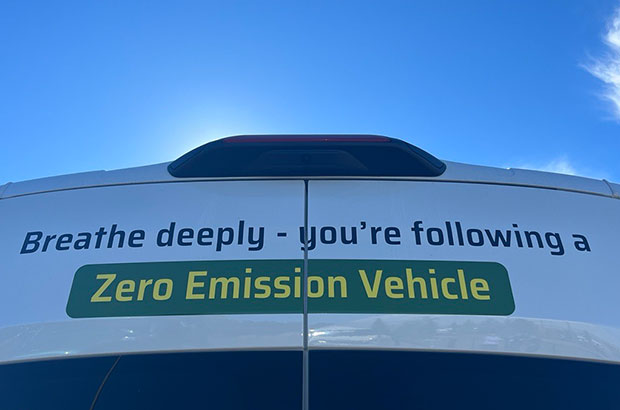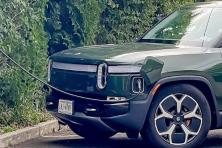No matter where you live in Washington, you should get to breathe safe and clean air and know the vehicles helping get us around and delivering goods in our communities are not making it worse. Yet in our state, transportation generates the largest amount of climate pollution compared to other sectors, and medium- and heavy-duty (MHD) vehicles, such as school buses, transit buses, garbage trucks, delivery vans, and semis, contribute disproportionately to that pollution.
Send a message to your legislators today asking them to address this.
On top of fueling the climate crisis, these vehicles currently spew a lot of toxic pollution. Diesel exhaust is responsible for 70% of our cancer risk from airborne pollutants in Washington. Low-income and overburdened communities near roadways, ports, and distribution centers then breathe this pollution the most.
More businesses and public agencies should be able to buy big, clean vehicles, yet today, zero-emission MHD vehicles account for less than 1% of sales. According to the State Energy Strategy, these vehicles need to account for at least two-thirds of sales by 2035 in order for Washington to meet its climate pollution limits.
Unfortunately, our policies and incentives regarding these large vehicles are behind those for passenger vehicles, and our planned spending is inadequate. Our legislators should go big on cleaning up big vehicles and now fund:
- A point-of-sale vehicle incentive program for zero-emission MHD vehicles
Providing an incentive at the point of sale enables the greatest participation by owners of MHDs by mitigating their upfront costs. This type of program has been hugely successful in Massachusetts, California, New Jersey, and New York. This program should contain funding that prioritizes small businesses and helps switch highly polluting sectors, like port drayage (short hauls from ports and other areas to nearby locations).
- Innovative demonstration projects of clean MHD vehicles
Washington should lead the way by supporting deployment of earlier-stage zero- emission vehicle applications, such as clean fire trucks.
- Incentives for MHD vehicle chargers
To transition our vehicles, we need a charging network that is capable of fueling larger vehicles. In addition, fleet operators often need financial and technical assistance for charging installation.





